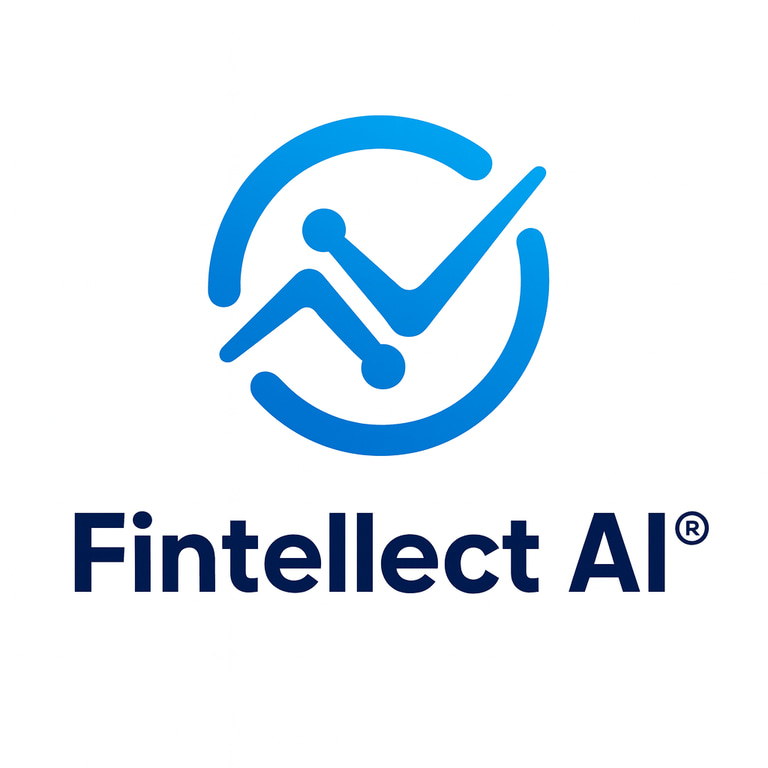Why the Best CFOs Think Like Algorithms (But Act Like Humans)
The evolution of financial leadership in the age of AI: How systematic thinking and human wisdom create superior decision-making
CFO INSIGHTS
Zhivka Nedyalkova
7/1/20254 min read


The evolution of financial leadership in the age of AI: How systematic thinking and human wisdom create superior decision-making
During a strategic planning session for 2024, the CFO of a fast-growing software company faced a dilemma that perfectly illustrated the challenges of modern financial leadership. The AI analytics platform recommended aggressive market expansion, based on historical growth data and competitive analysis. Every metric pointed in one direction: "Now is the time to scale."
But the CFO did something unexpected. Instead of following the algorithm's recommendations, she requested meetings with the sales and product development teams. She discovered that despite strong numbers, the team felt overwhelmed, and customer service quality was beginning to decline. Her decision? They delayed expansion by three months, invested in improving internal processes, and when they finally launched the expansion, it was 40% more successful than initial projections.
This moment crystallized something I'd been observing throughout my career: the most effective CFOs have learned to think with the systematic rigor of algorithms while maintaining the contextual wisdom that only humans possess.
The Algorithmic Mindset: Systematic Pattern Recognition
The best CFOs have developed what I call "algorithmic thinking"—not because they're becoming robots, but because they've internalized the systematic approaches that make algorithms so powerful. They break down complex problems into component parts, identify patterns across vast datasets, and apply consistent frameworks to decision-making.
Consider how top CFOs approach scenario planning. Rather than relying on gut instinct or single-variable analysis, they systematically examine multiple interconnected factors: market conditions, competitive landscape, internal capabilities, regulatory environment, and stakeholder expectations. They weight these variables, test different combinations, and stress-test outcomes across various scenarios—essentially running mental algorithms.
This systematic approach extends to pattern recognition. Exceptional CFOs develop an ability to spot emerging trends before they become obvious. They notice when customer acquisition costs start trending upward across multiple channels, when cash conversion cycles begin extending despite stable sales, or when small margin compressions in specific product lines signal larger market shifts. They've trained themselves to process multiple data streams simultaneously and identify correlations that others miss.
But here's where it gets interesting: they do all of this not to replace human judgment, but to enhance it.
The Human Element: Context, Relationships, and Timing
While algorithmic thinking provides the framework, human insight provides the context that transforms data into wisdom. The most successful CFOs understand that numbers tell stories, but they don't tell the whole story.
Take the example of workforce optimization. An algorithm might identify that reducing headcount by 15% would improve short-term profitability. But a human CFO considers additional variables: the company's mission and values, the competitive job market, the timing relative to other business initiatives, the impact on customer service quality, and the long-term cultural implications of such a decision.
Superior CFOs also understand the crucial role of timing and stakeholder psychology. They might delay a perfectly rational restructuring because they recognize that the organization needs time to absorb other changes first. Or they might accelerate an investment decision not because the numbers changed, but because they sense a shift in market sentiment that creates a fleeting window of opportunity.
The relationship dimension is equally critical. While algorithms can process transaction data, they can't read the room during a tense negotiation, sense when a key partner is becoming frustrated despite saying the right words, or understand the unspoken dynamics that influence board decisions.
The Integration: Where Art Meets Science
The magic happens when CFOs seamlessly integrate algorithmic thinking with human insight. They use systematic analysis to eliminate bias and ensure comprehensive evaluation, but they apply human judgment to interpret results within broader context.
This integration manifests in several key areas:
Strategic Investment Decisions: They use algorithmic approaches to model various scenarios and quantify risks, but human insight to evaluate whether the timing aligns with organizational capacity and market psychology.
Performance Management: They employ systematic metrics and benchmarking to identify performance gaps, but human understanding to determine whether the root causes are structural, cultural, or temporary.
Crisis Management: They apply rigorous analytical frameworks to understand the scope and implications of problems, but human intuition to determine the sequence and pace of solutions.
Stakeholder Communication: They use data-driven insights to build compelling narratives, but human empathy to tailor messages for different audiences and emotional contexts.
The Evolution of Financial Leadership
This hybrid approach represents a fundamental evolution in financial leadership. Traditional CFOs were often seen as the "numbers people"—analytically rigorous but sometimes disconnected from the human elements of business. Today's most effective CFOs are becoming "decision architects"—building systematic frameworks for complex choices while maintaining acute sensitivity to human factors.
This evolution is accelerating as AI tools become more sophisticated. The CFOs who thrive won't be those who resist AI or those who blindly embrace it, but those who learn to think like algorithms while acting like the humans they serve.
The future belongs to leaders who can process information with systematic rigor, identify patterns across complex datasets, and apply consistent analytical frameworks—while simultaneously reading between the lines, understanding emotional undercurrents, and making decisions that honor both data and humanity.
In this new paradigm, the best CFOs don't choose between being analytical or intuitive, systematic or flexible, data-driven or people-focused. They master the art of being all of these things simultaneously, using algorithmic thinking to enhance rather than replace their human capabilities.
As I often tell fellow executives: let the algorithms handle the calculations, but never let them make the decisions. That's where human wisdom—informed by systematic thinking—becomes irreplaceable.
Contact us:
© 2026. All rights reserved.
